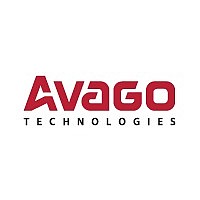HFBR-0535 Avago Technologies US Inc., HFBR-0535 Datasheet - Page 2

HFBR-0535
Manufacturer Part Number
HFBR-0535
Description
Fiber Optics, Evaluation Kit
Manufacturer
Avago Technologies US Inc.
Specifications of HFBR-0535
Silicon Core Number
HFBR-53D5
Kit Contents
Evaluation Board, Associated Literature
Features
Fiber-Optic VCSEL Transceiver, Single Mode Evaluation
Main Purpose
Interface, Fiber Optics
Embedded
No
Utilized Ic / Part
1x9 Fiber Optic Transceiver Modules
Primary Attributes
Tests 1x9 Fiber Optic Modules
Secondary Attributes
SMA Connectors
Tool / Board Applications
Fiber Optic Transceivers
Rohs Compliant
Yes
Operating Voltage
5 V
Description/function
Fiber Optic Kit
Lead Free Status / RoHS Status
Lead free / RoHS Compliant
For Use With/related Products
HFBR-53D5, HFCT-53D5
Lead Free Status / RoHS Status
Lead free / RoHS Compliant, Contains lead / RoHS non-compliant
Package and Handling Instructions
Flammability
The HFBR/HFCT-53D3 transceiver housing is made of high
strength, heat resistant, chemically resistant, and UL 94V-0
flame retardant plastic.
Recommended Solder and Wash Process
The HFBR/HFCT-53D3 is compatible with industry-standard
wave or hand solder processes.
Process plug
This transceiver is supplied with a process plug (HFBR-
5000) for protection of the optical ports within the duplex
SC connector receptacle. This process plug prevents
contamination during wave solder and aqueous rinse as
well as during handling, shipping and storage. It is made
of a high-temperature, molded sealing material that can
withstand +80°C and a rinse pressure of 110 lbs per square
inch.
Recommended Solder fluxes
Solder fluxes used with the HFBR/HFCT-53D3 should be
water-soluble, organic fluxes. Recommended solder fluxes
include Lonco 3355-11 from London Chemical West, Inc.
of Burbank, CA, and 100 Flux from Alpha-Metals of Jersey
City, NJ.
Recommended Cleaning/Degreasing Chemicals
Alcohols: methyl, isopropyl, isobutyl.
Aliphatics: hexane, heptane.
Other: soap solution, naphtha.
Do not use partially halogenated hydrocarbons such as
1,1.1 trichloroethane, ketones such as MEK, acetone,
chloroform, ethyl acetate, methylene dichloride, phenol,
methylene chloride, or N-methylpyrolldone. Also, Avago
does not recommend the use of cleaners that use haloge-
nated hydrocarbons because of their potential environ-
mental harm.
2
Regulatory Compliance
(See the Regulatory Complance Table for transceiver perfor-
mance). The overall equipment design will determine the
certification level. The transceiver performance is offered
as a figure of merit to assist the designer in considering
their use in equipment designs.
Electrostatic Discharge (ESD)
There are two design cases in which immunity to ESD
damage is important.
The first case is during handling of the transceiver prior
to mounting it on the circuit board. It is important to use
normal ESD handling precautions for ESD sensitive
devices. These precautions include using grounded wrist
straps, work benches, and floor mats in ESD controlled
areas. The transceiver performance has been shown to
provide adequate performance in typical industry produc-
tion environments.
The second case to consider is static discharges to the
exterior of the equipment chassis containing the trans-
ceiver parts. To the extent that the duplex SC connector
receptacle is exposed to the outside of the equipment
chassis it may be subject to whatever system-level ESD test
criteria that the equipment is intended to meet. The trans-
ceiver performance is more robust than typical industry
equipment requirements of today.
Electromagnetic Interference (EMI)
Most equipment designs utilizing these high-speed trans-
ceivers from Avago will be required to meet the require-
ments of FCC in the United States, CENELEC EN55022
(CISPR 22) in Europe and VCCI in Japan. Refer to EMI
section (page 5) for more details.
Immunity
Equipment utilizing these transceivers will be subject to
radio-frequency electromagnetic fields in some environ-
ments. These transceivers have good immunity to such
fields due to their shielded design.
Eye Safety
These laser-based transceivers are classified as AEL Class
I (U.S. 21 CFR(J) and AEL Class 1 per EN 60825-1 (+A11).
They are eye safe when used within the data sheet
limits per CDRH. They are also eye safe under normal
operating conditions and under all reasonably foresee-
able single fault conditions per EN60825-1. Avago has
tested the transceiver design for compliance with the
requirements listed below under normal operating
conditions and under single fault conditions where ap-
plicable. TUV Rheinland has granted certification to these
transceivers for laser eye safety and use in EN 60950 and
EN 60825-2 applications. Their performance enables the
transceivers to be used without concern for eye safety up
to 7 V transmitter V
CC
.
























